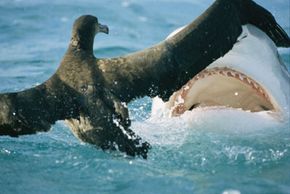You've always been a friend to animals. Ever since you can remember, you've brought home injured squirrels and bird nestlings to nurse. You have what is commonly referred to as the maternal instinct.
Mothers have long demonstrated the maternal instinct, that undeniable urge to care for their offspring. Science has just recently determined that it has a biological basis. A 2008 study of mothers who were shown video footage of children crying and smiling reacted differently than when video of their own child crying or smiling was displayed. In magnetic resonance imaging (MRI) scans, neurons in the mothers' brains lit up when they saw their child, especially in the case of seeing their child cry [source: The New York Times].
Advertisement
So we could argue that mothers are wired to respond to their children. But humans aren't the only animals who display this caretaking imperative. Evidence of this instinct is found in almost every species on Earth. And it isn't strictly relegated to caring for offspring or members of the same species. In one instance in 2008, a King Charles spaniel named Ellie made news after she took it upon herself to care for a litter of rabbits whose mother had died [source: National Geographic].
You can certainly understand where Ellie the spaniel is coming from. You've adopted rabbits, too. Your sense of duty toward hurt and helpless animals hardly ends at the shoreline, though. You feel the same sense of responsibility to help hurt fish and other aquatic life. Say, there's a fish flapping about in the surf right now. Perhaps you should go see if you can help it. As you wade out to where the fish is struggling near the water's surface, a vague memory of an episode of "Mythbusters" you saw gnaws at you. Something about sharks and flapping fish... What was it? Oh yeah -- don't flapping fish attract sharks? While you stand there, waist-deep in the ocean and frozen in terror, you might as well turn to the next page to find out if it's true.
Advertisement

